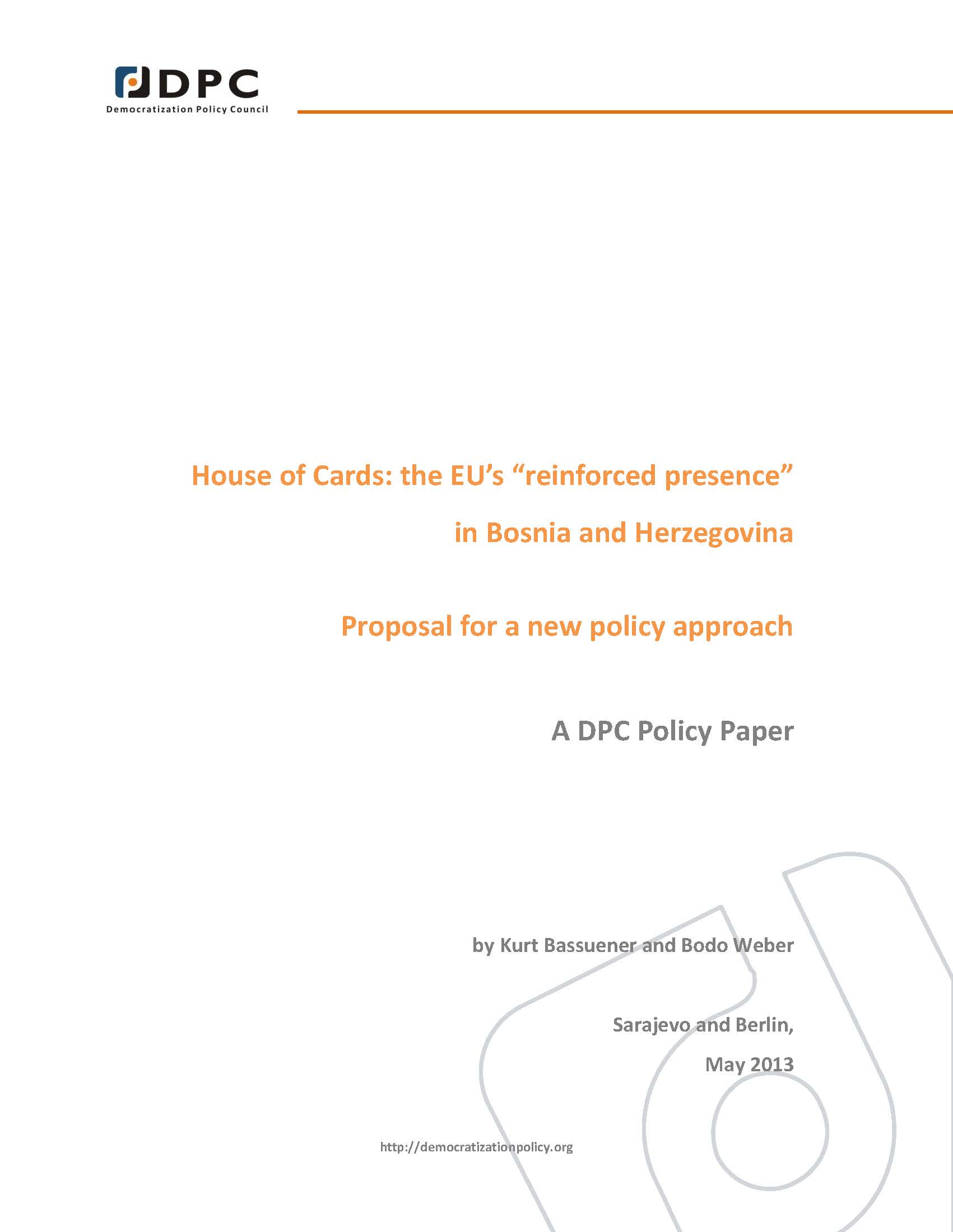House of Cards: the EU’s “reinforced presence” in Bosnia and Herzegovina. Proposal for a new policy approach.
House of Cards: the EU’s “reinforced presence” in Bosnia and Herzegovina. Proposal for a new policy approach.
Author(s): Kurt Bassuener, Bodo Weber
Contributor(s): Tobias K. Vogel (Editor)
Subject(s): Politics, EU-Approach / EU-Accession / EU-Development
Published by: DPC Democratization Policy Council e.V.
Keywords: BiH; EU; presence; new policy; proposal; international policy; international community; January initiative; Western Balkans;
Summary/Abstract: For seven years running, international actors have obsessed over their posture, structure and responsibility in Bosnia and Herzegovina (BiH). The assumption that led to the shift to an “ownership” approach – that BiH would propel itself into the Euro-Atlantic mainstream – has long since foundered on the shoals of BiH’s systemic realities. Deep divisions opened within the Peace Implementation Council Steering Board (PIC SB) and among EU members as the hopelessness of the current approach became increasingly evident. No systematic analysis was conducted on why the EU’s inducement of potential membership failed to deliver traction, as it had elsewhere. Paralysis set in. The arrival of a “reinforced EU presence” under the unified leadership of EU Special Representative Peter Sørensen in September 2011 gave the EU the undisputed lead international role in BiH. London and Washington de-emphasized their misgivings with the EU approach in the hope of a fresh start. Yet the political situation has reached an all-time low. BiH currently seems ungovernable – and the international community seems at a complete loss as to what to do about it, other than call upon Bosnian politicians to behave and for citizens to hold them to account. The international community’s primary problem in BiH is not one of conflicting philosophies, but rather of a lack of political will to deal with reality. Unwillingness of bureaucrats to tell their political masters the truth – that their chosen policy has failed and cannot succeed – is to blame. As a result, bureaucratic instrumentalism and finger-pointing predominate. Political resistance to the “European path” on the ground has been met with lowered benchmarks or their abandonment altogether. This policy leaves domestic political elites with the strong impression that far from entailing adoption of non-negotiable standards, EU integration is an à la carte process in which the EU itself is often the supplicant – an open invitation to undermine existing rules and regulations, rather than work on adopting new ones. The EU is and will remain an actor stuck in the morass of BiH politics. Yet it refuses to even recognize itself as a political actor, unable to admit the limitations of its approach in BiH. The EU eschews applying the potential leverage in its existing “toolbox” to drive democratization and reform. Until this potential is developed and employed, the “reinforced” EUSR/Head of Delegation will be as unsuccessful as his last three double-hatted predecessors. Now is the time to develop a real, integrated strategy toward making BiH a self-sustaining state.
Series: DEM. POLICY COUNCIL - Policy Papers
- Page Count: 24
- Publication Year: 2013
- Language: English
- Content File-PDF

